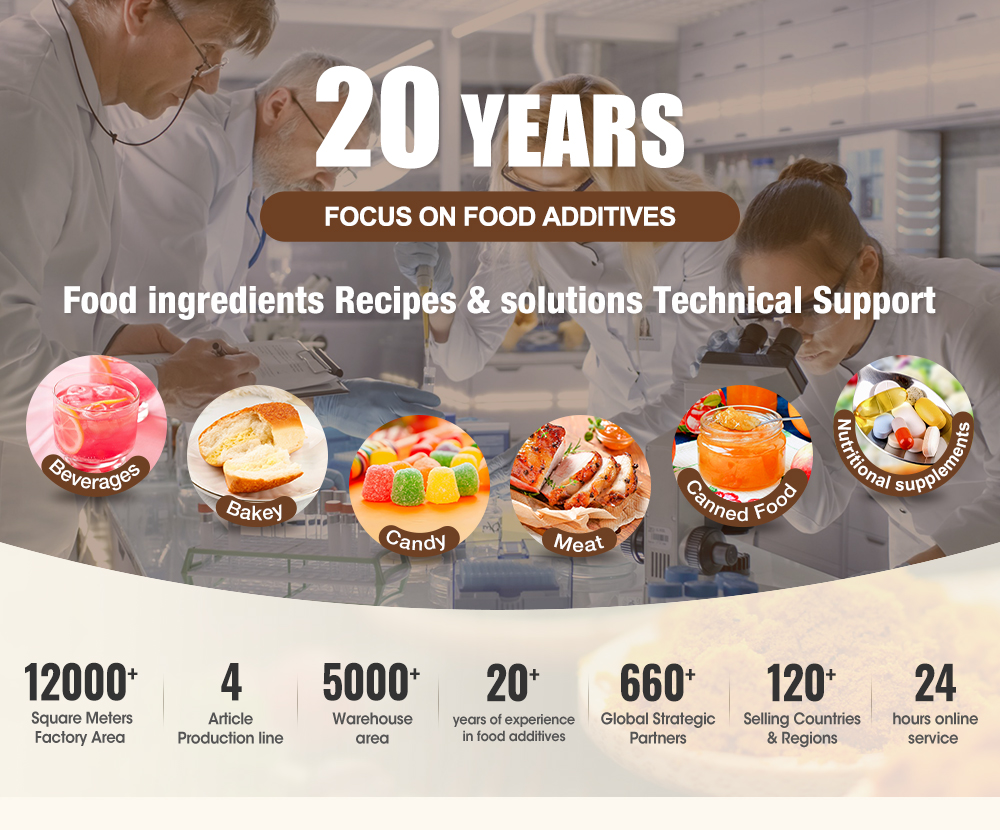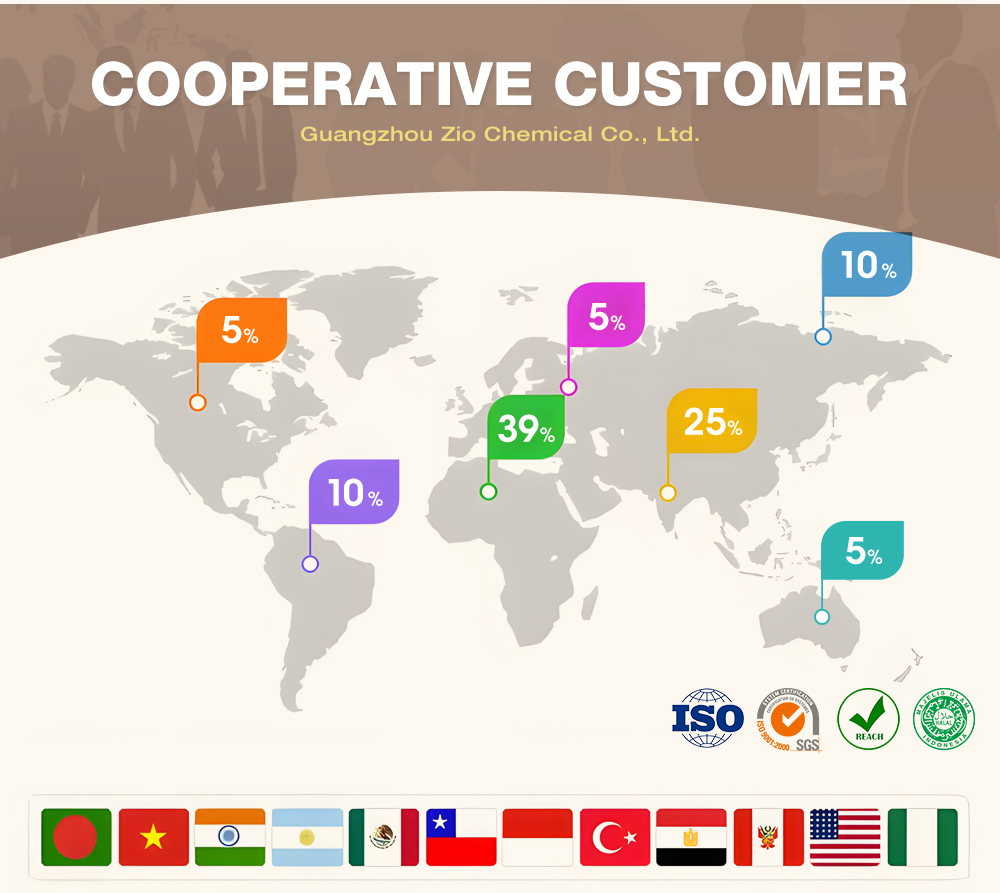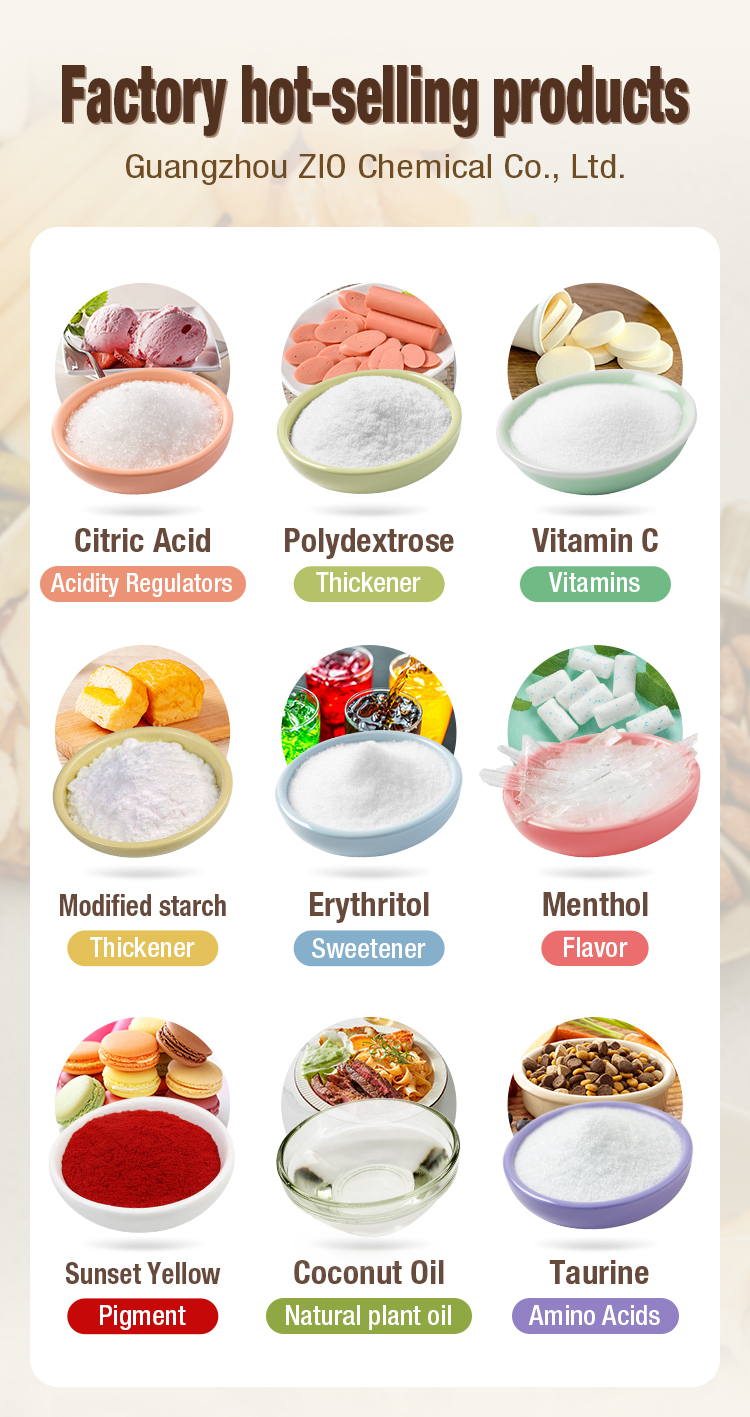Sorbitol Liquid is a versatile and widely used sugar alcohol that serves as a sweetener, humectant, and texturizing agent in various industries. This clear, viscous liquid is approximately 60% as sweet as sucrose, making it an ideal low-calorie alternative for sugar in food and beverage applications. Sorbitol is favored not only for its sweetness but also for its ability to retain moisture, enhancing the texture and shelf life of products. It is commonly found in sugar-free candies, baked goods, and dietary supplements, as well as in pharmaceutical formulations such as syrups and chewable tablets. Additionally, its non-cariogenic properties make it a preferred choice in dental care products, contributing to oral health by not promoting tooth decay. With its multifunctional properties, sorbitol liquid is essential for manufacturers aiming to create healthier, appealing products.
| Availability: | |
|---|---|
| Quantity: | |











Liquid Sorbitol (CAS No.: 50-70-4) is a polyol sugar alcohol presented as a clear, viscous liquid. With a solid content of 70%–75%, pH 5.0–7.0, and specific gravity of 1.28–1.32 g/cm³, it is tailored for dairy applications. Compliant with FCC, USP, and GB 1886.187 standards, it features a low glycemic index (GI) of 9 and is certified Halal (JAKIM) and Kosher (OU). Designed to extend shelf life and improve texture in yogurt, cheese, and cream products.
Shelf Life Extension: Inhibits microbial growth (yeast and mold) in dairy products, extending shelf life by 15–30 days (e.g., yogurt from 21 to 45 days).
Low Glycemic Impact: GI of 9 (vs. 65 for sucrose) and 2.6 kcal/g, supporting "low-sugar" and "diabetic-friendly" labeling for dairy items.
Texture Enhancement: Improves creaminess in low-fat yogurt by 35% and prevents syneresis (whey separation) in cottage cheese.
Freeze Stability: Prevents ice crystal formation in frozen dairy desserts, maintaining smooth texture during -18°C storage.
Cost Efficiency: 30% lower cost than glycerin, with equivalent moisture-retention properties in dairy formulations.
Yogurt & Fermented Milks: Added at 2%–5% post-fermentation. Reduces whey separation by 80% and enhances mouthfeel without altering tangy flavor.
Cheese Products: Incorporated at 1%–3% in cream cheese and processed cheese. Improves spreadability and prevents hardening during refrigeration.
Ice Cream & Frozen Yogurt: Used at 3%–6% to lower freezing point by 2°C–3°C, reducing melting rate and improving scoopability.
Dairy Drinks: Mixed into protein shakes and milk beverages at 1%–2%, enhancing sweetness and preventing protein aggregation.

Q: Does liquid sorbitol affect probiotic viability in yogurt?
A: No. Studies show it preserves ≥90% of Lactobacillus bulgaricus and Streptococcus thermophilus during 30-day refrigerated storage.
Q: What’s the difference between 70% and 75% solid content grades?
A: 70% is ideal for high-moisture dairy (yogurt), while 75% suits low-moisture products (cheese). Both maintain stability across pH 4.0–8.0.
Q: How to handle and store liquid sorbitol?
A: Store in stainless steel tanks at 20°C–30°C to prevent viscosity increase. Avoid contact with copper; shelf life is 24 months when sealed.


Liquid Sorbitol (CAS No.: 50-70-4) is a polyol sugar alcohol presented as a clear, viscous liquid. With a solid content of 70%–75%, pH 5.0–7.0, and specific gravity of 1.28–1.32 g/cm³, it is tailored for dairy applications. Compliant with FCC, USP, and GB 1886.187 standards, it features a low glycemic index (GI) of 9 and is certified Halal (JAKIM) and Kosher (OU). Designed to extend shelf life and improve texture in yogurt, cheese, and cream products.
Shelf Life Extension: Inhibits microbial growth (yeast and mold) in dairy products, extending shelf life by 15–30 days (e.g., yogurt from 21 to 45 days).
Low Glycemic Impact: GI of 9 (vs. 65 for sucrose) and 2.6 kcal/g, supporting "low-sugar" and "diabetic-friendly" labeling for dairy items.
Texture Enhancement: Improves creaminess in low-fat yogurt by 35% and prevents syneresis (whey separation) in cottage cheese.
Freeze Stability: Prevents ice crystal formation in frozen dairy desserts, maintaining smooth texture during -18°C storage.
Cost Efficiency: 30% lower cost than glycerin, with equivalent moisture-retention properties in dairy formulations.
Yogurt & Fermented Milks: Added at 2%–5% post-fermentation. Reduces whey separation by 80% and enhances mouthfeel without altering tangy flavor.
Cheese Products: Incorporated at 1%–3% in cream cheese and processed cheese. Improves spreadability and prevents hardening during refrigeration.
Ice Cream & Frozen Yogurt: Used at 3%–6% to lower freezing point by 2°C–3°C, reducing melting rate and improving scoopability.
Dairy Drinks: Mixed into protein shakes and milk beverages at 1%–2%, enhancing sweetness and preventing protein aggregation.

Q: Does liquid sorbitol affect probiotic viability in yogurt?
A: No. Studies show it preserves ≥90% of Lactobacillus bulgaricus and Streptococcus thermophilus during 30-day refrigerated storage.
Q: What’s the difference between 70% and 75% solid content grades?
A: 70% is ideal for high-moisture dairy (yogurt), while 75% suits low-moisture products (cheese). Both maintain stability across pH 4.0–8.0.
Q: How to handle and store liquid sorbitol?
A: Store in stainless steel tanks at 20°C–30°C to prevent viscosity increase. Avoid contact with copper; shelf life is 24 months when sealed.


Product Informations
| Name | Sorbitol |
| Ingredient | Sorbitol liquid |
| Specification | 270kg/drum |
| Capacity | 280.000 kg |
| Place Of Production | Guangdong, China |
| Shelf Life | 1 Year |
| Storage Conditions | Keep Shade |
Product Informations
| Name | Sorbitol |
| Ingredient | Sorbitol liquid |
| Specification | 270kg/drum |
| Capacity | 280.000 kg |
| Place Of Production | Guangdong, China |
| Shelf Life | 1 Year |
| Storage Conditions | Keep Shade |
Sweetening Power: Sorbitol liquid offers a mild sweetness, approximately 60% that of sucrose, allowing manufacturers to reduce overall sugar content without sacrificing taste.
Humectant Properties: This liquid acts as a powerful humectant, helping to retain moisture in both food and cosmetic formulations. This quality is particularly beneficial in baked goods, where it can prevent staleness.
Stability and Shelf Life: Sorbitol is chemically stable, maintaining its properties over time, which is crucial for products with extended shelf lives.
Non-Cariogenic: Unlike traditional sugars, sorbitol does not contribute to tooth decay, making it a safe option for use in dental care products.
Low Glycemic Index: Sorbitol has a low glycemic index, making it suitable for diabetic consumers as it has a minimal impact on blood sugar levels.












Sweetening Power: Sorbitol liquid offers a mild sweetness, approximately 60% that of sucrose, allowing manufacturers to reduce overall sugar content without sacrificing taste.
Humectant Properties: This liquid acts as a powerful humectant, helping to retain moisture in both food and cosmetic formulations. This quality is particularly beneficial in baked goods, where it can prevent staleness.
Stability and Shelf Life: Sorbitol is chemically stable, maintaining its properties over time, which is crucial for products with extended shelf lives.
Non-Cariogenic: Unlike traditional sugars, sorbitol does not contribute to tooth decay, making it a safe option for use in dental care products.
Low Glycemic Index: Sorbitol has a low glycemic index, making it suitable for diabetic consumers as it has a minimal impact on blood sugar levels.











